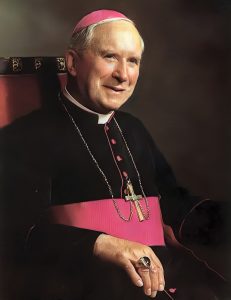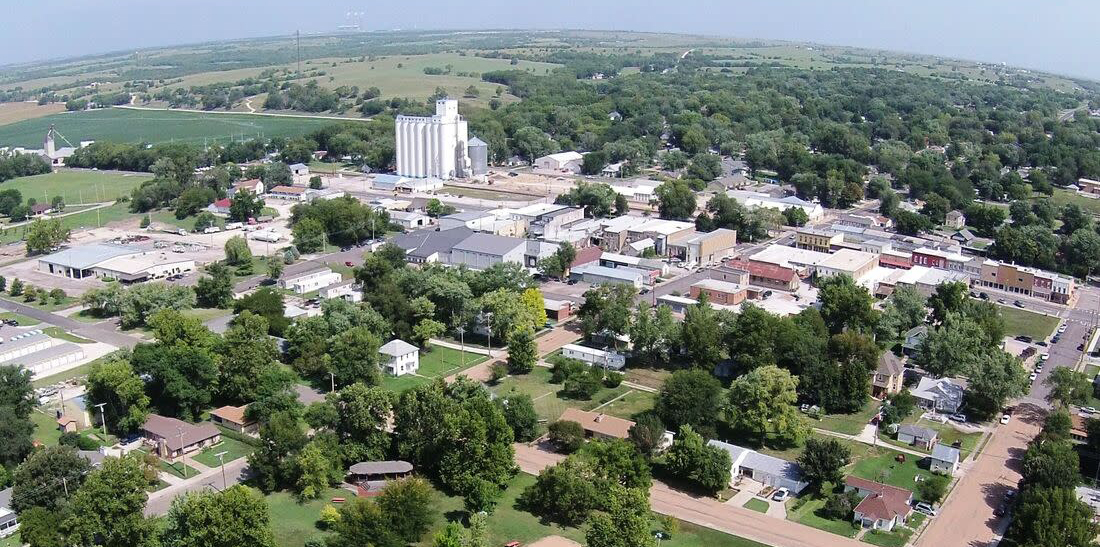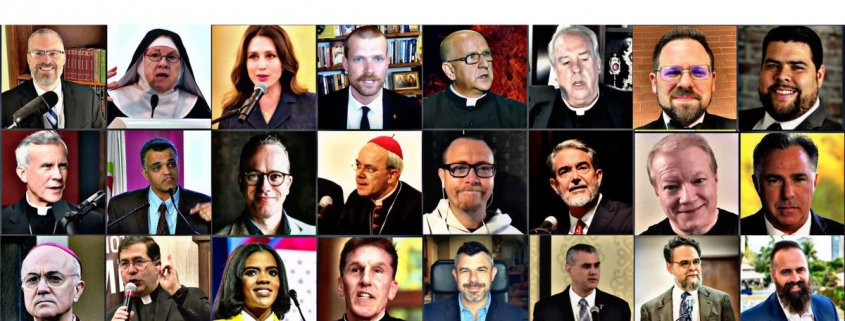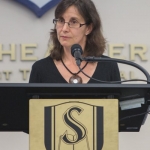The Harrison Butker story is so much weirder than you know
This article originally appeared at Baptist News Global on May 24, 2024.
“The headline could just be, ‘Man who kicks ball for a living and has no other job criticizes women who want to be nurses, surgeons and U.N. Secretary General,’” said Brad Onishi on the Straight White American Jesus podcast episode that featured discussion about the Kansas City Chiefs kicker Harrison Butker. “He literally gets up in the morning and his employment is to kick one ball in one direction. And he’s telling everyone else what the essence of their vocation should be.”
Butker has been making headlines because of his speech at Benedictine College, a conservative Catholic school in Atchison, Kan., during which he claimed his wife’s life started after she met him, converted to his religion and became his homemaker. He also spoke out against President Biden and LGBTQ people.
In the days after his speech, it seemed half of the country was appalled at his words and the other half wanted to buy his jersey to support him.
O.S. Hawkins, chancellor of Southwestern Baptist Theological Seminary, has been posting pro-Butker articles on social media. Al Mohler of Southern Baptist Theological Seminary has jumped in as well, voicing his support for Butker’s words about what theological conservatives consider the created order.
However, the NFL’s chief diversity and inclusion officer, Jonathan Beane, declared Butker’s views “are not those of the NFL as an organization. The NFL is steadfast in our commitment to inclusion, which only makes our league stronger.”
 Tavia Hunt, wife of Chiefs owner Clark Hunt, disagrees with the NFL. She took to Instagram to post her support for Butker’s view of women. And her daughter, Gracie Hunt, appeared on Fox and Friends to say, “I really respect Harrison and his Christian faith.” Chiefs coach Andy Reid and quarterback Patrick Mahomes have voiced their disagreement, but support Butler’s right to free speech.
Tavia Hunt, wife of Chiefs owner Clark Hunt, disagrees with the NFL. She took to Instagram to post her support for Butker’s view of women. And her daughter, Gracie Hunt, appeared on Fox and Friends to say, “I really respect Harrison and his Christian faith.” Chiefs coach Andy Reid and quarterback Patrick Mahomes have voiced their disagreement, but support Butler’s right to free speech.
And the Benedictine sisters of Mount St. Scholastica released a statement condemning Butker’s comments while claiming they “want to be known as an inclusive, welcoming community.”
On one hand, this could be a story about how we choose to promote the celebrities who champion our causes or demonize those who do not. It also could be a piece about how many on the right attempt to silence Black athletes such as Colin Kaepernick who speak out about social justice, while celebrating the likes of Butker who demonize social justice.
But the further we look into Butker’s story, we begin to realize the causes we support often have a lot more going on behind them than we realize. In the case of conservative Christians, the consequences of their cause are deadly.

Harrison Butker as an altar server at Traditional Latin Mass. ( Screenshot from EWTN YouTube video)
Butker, Benedictine College and the Traditional Latin Mass
“We need to stop pretending that the ‘church of nice’ is a winning proposition,” Butker proclaimed in his address. “It is safe to say that over the past few years, I have gained quite the reputation for speaking my mind.”
“With his reputation preceding him, to think Benedictine College didn’t know what he was going to say would be naive.”
With his reputation preceding him, to think Benedictine College didn’t know what he was going to say would be naive. In fact, Butker said President Minnis reached out to him on behalf of the board and “used his gift of persuasion” to convince Butker to come.
Many people are assuming the Benedictine sisters who released their statement are connected to the college. But they haven’t been involved with the college since the early 1990s. The college itself hasn’t made any statement because they agree with Butker, as evidenced by their invitation and their ultraconservative policies that include prohibitions on female students wearing swimsuits.
A monk close to the college said the leadership wanted to know what kind of reaction the sisters would get and have decided to double down in their support of Butker.
For Butker, the ideal not-so-nice church as a “winning proposition” is found in the communities of the Traditional Latin Mass, often referred to in shorthand as TLM.
“I attend the TLM because I believe, just as the God of the Old Testament was pretty particular in how he wanted to be worshipped, the same holds true for us today,” Butker explained. “It is through the TLM that I encountered order and began to pursue it in my own life.”
Then he challenged the graduates: “The TLM is so essential that I would challenge each of you to pick a place to move where it is readily available.”
Those are fighting words within modern Catholicism.
The Traditional Latin Mass in fear of demons and diversity
The current controversy surrounding the Traditional Latin Mass began in the 1960s when Pope John XXIII introduced the Second Vatican Council that, among other things, changed the liturgy used during Mass from Latin to the language people understood. The new liturgy also utilized active participation by both lay men and women from all races.

Marcel Lefebvre
The Traditional Latin Mass had been in use since the Middle Ages and is spoken, as the name implies, in Latin. Not many people speak Latin today.
While the vast majority of Catholics were willing to move on to the new liturgy they could understand and resonate with, an extreme minority stayed passionately committed to the TLM.
One of the few who opposed the new liturgy was the Frenchman Marcel Lefebvre, who started the Society of Saint Pius X, known as SSPX, in Switzerland as a way of training Catholic seminary students according to the Latin tradition. He and the SSPX were excommunicated in 1988 by Pope John Paul II for consecrating four of his priests as bishops without Vatican permission.
As an attempt to reconcile differences and heal old wounds, Pope Benedict eventually lifted the excommunication of the SSPX in 2009 and put them simply in “inferior standing,” which is less than total communion but better than being excommunicated.
Basil Dannebohm, a former ministerial executive and legislator who writes for Baptist News Global, spent many years investigating conservative, radicalized Catholics from the inside. He shared his perspective in an interview for this piece.
“They contest that only they can thwart these efforts because they allege that the devil hates Latin.”
“In addition to the obvious radicalism that Butker is espousing, there are others within fringe movements of the Catholic Church who allege that demons are taking control of everything both in the church and state,” Dannebohm said. “They contest that only they can thwart these efforts because they allege that the devil hates Latin.”
And with the opening up of the active lay participation in the Catholic Mass to men and women from all races, fear of diversity naturally became paired with fear of demons.
Perhaps the paranoia that demons are on the attack by pushing diversity is why Butker told the women they were being attacked by “diabolic lies.”

Aerial view of St. Marys, Kansas. (Source: Kansas tourism)
Coming to America
While training seminary students in Switzerland, Lefebvre discovered the Jesuits were closing down one of their college campuses in Saint Marys, Kan. So he purchased the campus in 1978 with the dream of turning it into a United States fortress for preserving Pre-Vatican II tradition.
St. Marys is located an hour’s drive west of Atchison, and the school there is not the same as Benedictine College where Butker spoke. But what happened at St. Marys influenced what Butker believes. St. Marys is the entry point for SSPX in the United States.






Leave a Reply
Want to join the discussion?Feel free to contribute!